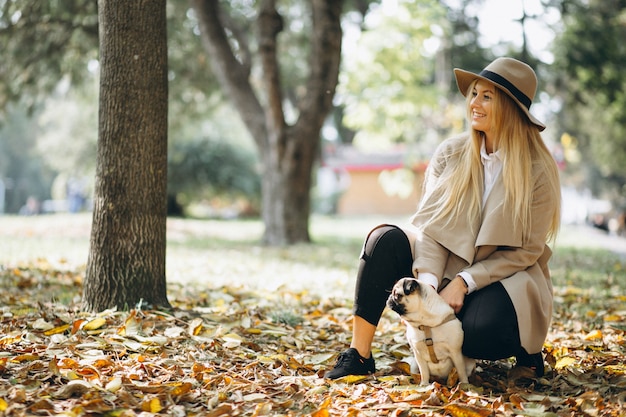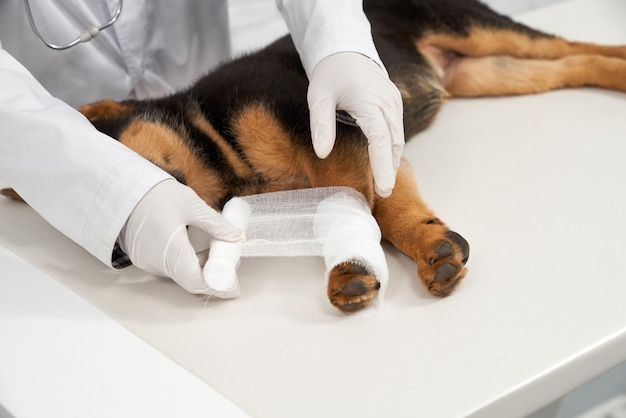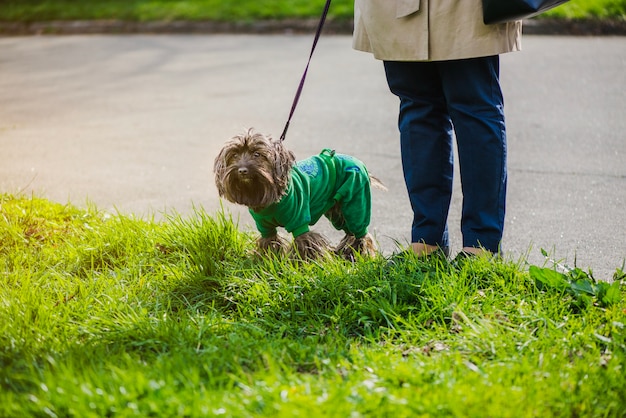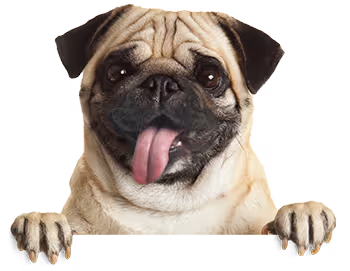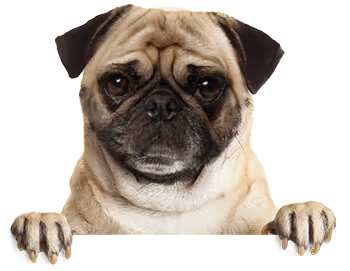Late Summer Pet Safety in Gainesville: Managing Rainy Day Risks

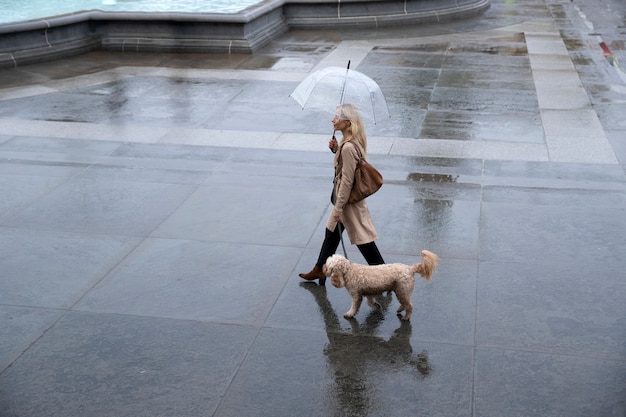
Late Summer Pet Safety in Gainesville: Managing Rainy Day Risks
Late summer in Gainesville, especially near the beautiful shores of Lake Lanier, brings a unique set of challenges for pet owners. As August rolls in, humid weather and frequent rain showers can turn daily walks into muddy adventures and create the perfect storm for skin irritations, allergies, and other health risks for your pets. At Blue Waters Animal Hospital, opening soon at 3630 Thompson Bridge Road, Suite 18B, Gainesville, GA 30506, we understand how important it is to keep your companions comfortable and healthy through these muggy months.
This guide is designed to help you recognize common seasonal issues, understand why they happen, and discover practical steps you can take to protect your pet during Gainesville’s late summer rainy season. We will also discuss when it’s time to reach out to your veterinary team for expert help. Whether you are searching for seasonal pet care Gainesville tips or looking to connect with a vet near me, you’ll find actionable advice tailored to our local climate and your pet’s needs. If you ever notice skin changes or allergy symptoms, our dermatology services for pets are here to support your pet’s comfort and wellbeing.
Spotting Rainy Day Risks: Signs Your Pet Is Struggling
Late summer storms in Gainesville often leave behind muddy yards, lingering puddles, and heavy humidity. For our furry companions, this means more than just dirty paws. Pets may develop a range of discomforts that can signal the need for closer attention.
Key symptoms to watch for include persistent licking or chewing at the paws, redness or sores between the toes, and a strong odor coming from the skin or ears. Additionally, you might notice a dull or greasy coat, flaky skin, or sudden hair loss. Allergic reactions during humid months are common; signs such as frequent scratching, watery eyes, sneezing, or even head shaking may point to underlying sensitivities. For pets who spend a lot of time outside, muddy fur and damp skin can quickly become a breeding ground for bacterial or fungal infections.
If your pet seems less energetic, is reluctant to go outside, or starts showing changes in appetite, these can also be subtle indicators of discomfort tied to the season. Remember, Gainesville’s climate can intensify these issues, so a proactive approach is key.
Understanding the Causes: Why Late Summer and Humidity Pose Extra Risks
Gainesville’s late summer weather creates a perfect environment for skin problems and allergic flare-ups in pets. The combination of heat, humidity, and frequent rainfall keeps the ground damp, which means your pet’s paws and fur are often exposed to moisture for longer periods. This constant dampness can soften the skin, making it easier for irritants, allergens, and microbes to penetrate.
Humidity encourages the growth of bacteria and yeast, both on your pet and in the environment. When pets walk through wet grass or muddy trails, tiny particles and allergens can get trapped in their fur and between their toes. These substances can trigger skin inflammation, hot spots, and ear infections. Dogs with long fur or floppy ears, as well as breeds prone to allergies, are particularly vulnerable.
Seasonal allergens like mold spores also peak during and after heavy rains. Pets may inhale these allergens or pick them up on their fur, leading to itchy skin, respiratory symptoms, and general discomfort. Even indoor pets can be affected, as increased humidity inside the home can promote dust mites and fungal growth.
Understanding these environmental factors is the first step in managing seasonal pet care Gainesville challenges. By knowing what to look for and why, you can better protect your companion from common humid weather pet tips pitfalls.
Treatment and Management: Getting Your Pet Back to Comfort
When your pet starts showing signs of muddy paw problems, skin irritation, or summer allergies, prompt attention can make all the difference. The veterinary team at Blue Waters Animal Hospital is equipped to assess and treat a wide range of late summer health issues.
Treatment approaches involve a combination of professional evaluation and targeted therapies. If your pet is experiencing persistent itching, sores, or signs of infection, a comprehensive pet exam will help determine the underlying cause. We may recommend diagnostic procedures such as skin scrapings, ear cytology, or specialized allergy testing to pinpoint the exact issue. Our allergy testing for pets can identify specific sensitivities that may be flaring up during Gainesville’s humid months.
For bacterial or fungal infections, topical or oral medications are usually prescribed based on the severity and location of the problem. Medicated shampoos, gentle cleaning routines, and prescription ointments can help clear up skin and paw irritations. In cases involving ear infections, thorough cleaning and targeted drops are typically required to restore comfort.
Managing seasonal allergies may also involve dietary changes or supplements that support skin health. For pets with ongoing issues, your veterinarian may recommend regular visits to monitor progress and adjust treatment plans as needed. Our priority is always to restore your pet’s comfort as quickly and safely as possible, while supporting you with local veterinary services in Gainesville tailored to the unique challenges of our region.
Prevention and Home Care: Keeping Your Pet Healthy in Humid Weather
The saying “an ounce of prevention is worth a pound of cure” rings especially true for seasonal pet care Gainesville families. Simple steps taken at home can go a long way in minimizing rainy day risks and keeping your pet healthy as summer transitions to fall.
Cleaning your pet’s paws and underbelly after every walk is one of the most effective ways to prevent muddy paw problems and skin infections. Use a damp, clean cloth or pet-safe wipes to remove dirt, allergens, and moisture, paying special attention to the areas between the toes. If your pet enjoys swimming in Lake Lanier or playing in the yard during rain showers, make sure to dry their fur thoroughly as soon as you return indoors.
Regular grooming helps remove trapped debris and reduces the risk of matting, which can hide skin issues. Brushing your pet’s coat several times a week, along with scheduled baths using gentle, veterinarian-approved shampoos, can keep skin and fur in optimal condition. For pets with long or dense coats, consider trimming the hair around their feet and ears to improve airflow and reduce moisture retention.
Pay attention to your home environment as well. Using a dehumidifier, washing bedding frequently, and keeping indoor areas well-ventilated can help control the growth of mold and dust mites. Feeding your pet a balanced diet rich in omega fatty acids may also support skin resilience during the humid months.
If you notice any changes in your pet’s skin or behavior, scheduling a comprehensive wellness exam is a proactive way to catch issues early and receive personalized advice from our veterinary professionals.
When to Seek Veterinary Care: Knowing When Home Remedies Aren’t Enough
While many rainy day pet problems can be managed at home, certain signs mean it is time to consult your veterinarian. If you notice persistent redness, swelling, or open sores on your pet’s skin, or if your pet is constantly licking or chewing at one area, these symptoms often point to infections that require medical treatment. Similarly, repeated shaking of the head, odor from the ears, or discharge should prompt a veterinary visit, as ear infections can worsen quickly in humid climates.
Other warning signs to watch for are sudden changes in behavior, such as lethargy, loss of appetite, or signs of pain when touched. These may indicate a deeper problem that needs prompt attention. If your pet’s symptoms do not improve within a few days of home care, or if they seem to be getting worse, it is always best to err on the side of caution.
Our team at Blue Waters Animal Hospital is here to provide thorough evaluations, accurate diagnoses, and effective treatments designed for pets living in Gainesville and surrounding communities. We encourage you to reach out for professional support whenever you have concerns, especially during challenging weather seasons.
Conclusion: Your Partner for Seasonal Pet Care in Gainesville
As the summer rains continue and humidity remains high in Gainesville, being proactive about your pet’s health can save you both discomfort and worry. By watching for early signs of trouble, maintaining good hygiene, and partnering with a trusted veterinary team, you can ensure your dog or cat enjoys the last days of summer safely.
If you are searching for a vet near me or looking for the best seasonal pet care Gainesville has to offer, we invite you to connect with Blue Waters Animal Hospital. Our team of veterinarians is committed to building lasting relationships with you and your pets, offering preventive care programs, wellness exams, and specialized support for skin conditions and allergies that are common in our region. To schedule an appointment or speak with our veterinary professionals about your pet’s needs, call (678) 656-7639 or visit us at 3630 Thompson Bridge Road, Suite 18B, Gainesville, GA 30506.
For more information about our dermatology services for pets, allergy testing for pets, or to book a comprehensive pet exam, our website offers convenient resources. Together, we can help your pet transition comfortably into fall, no matter what the weather brings.
This blog is for informational purposes only and does not replace professional veterinary advice. Always consult your veterinarian for concerns about your pet’s health or before starting any new treatment at home.



